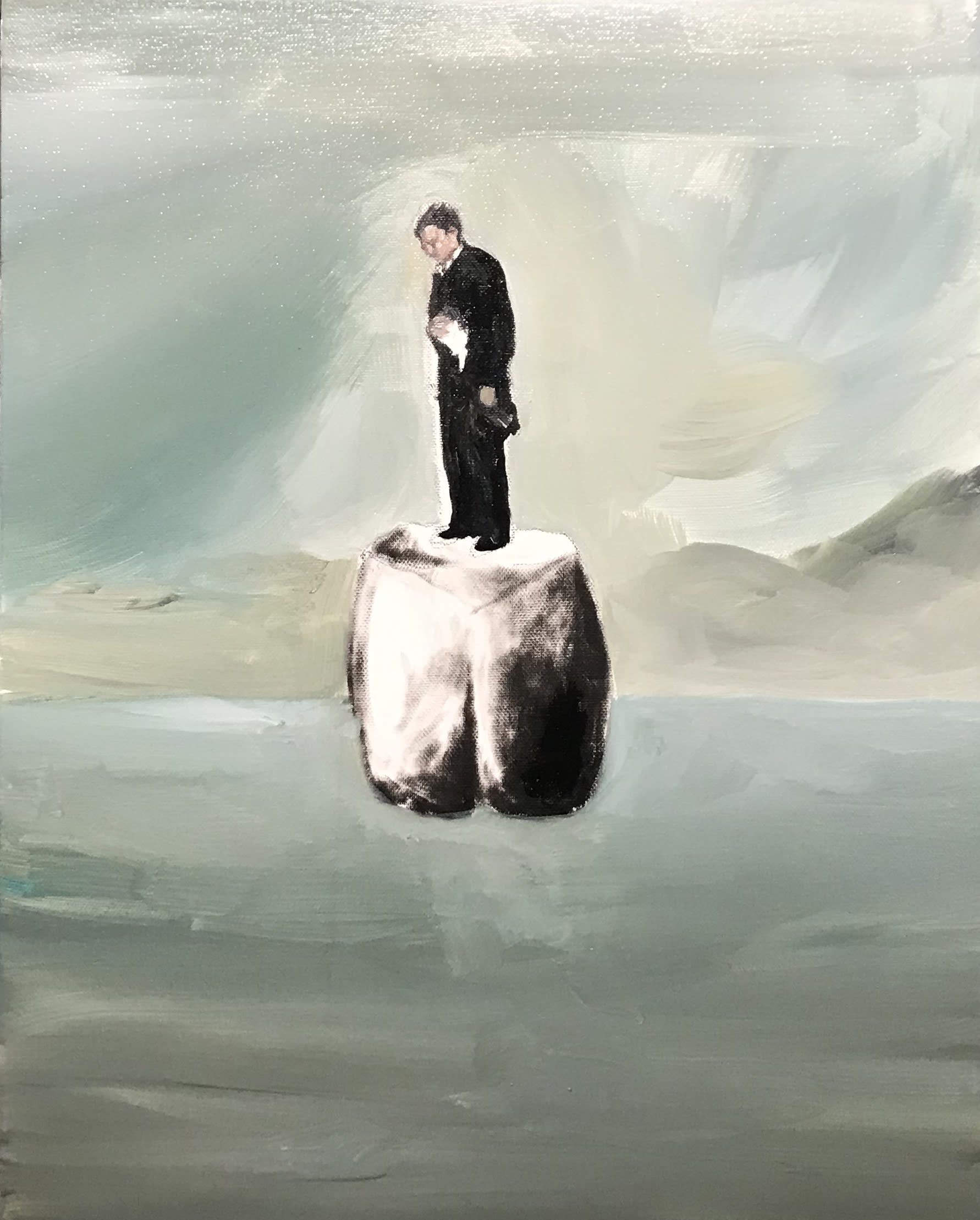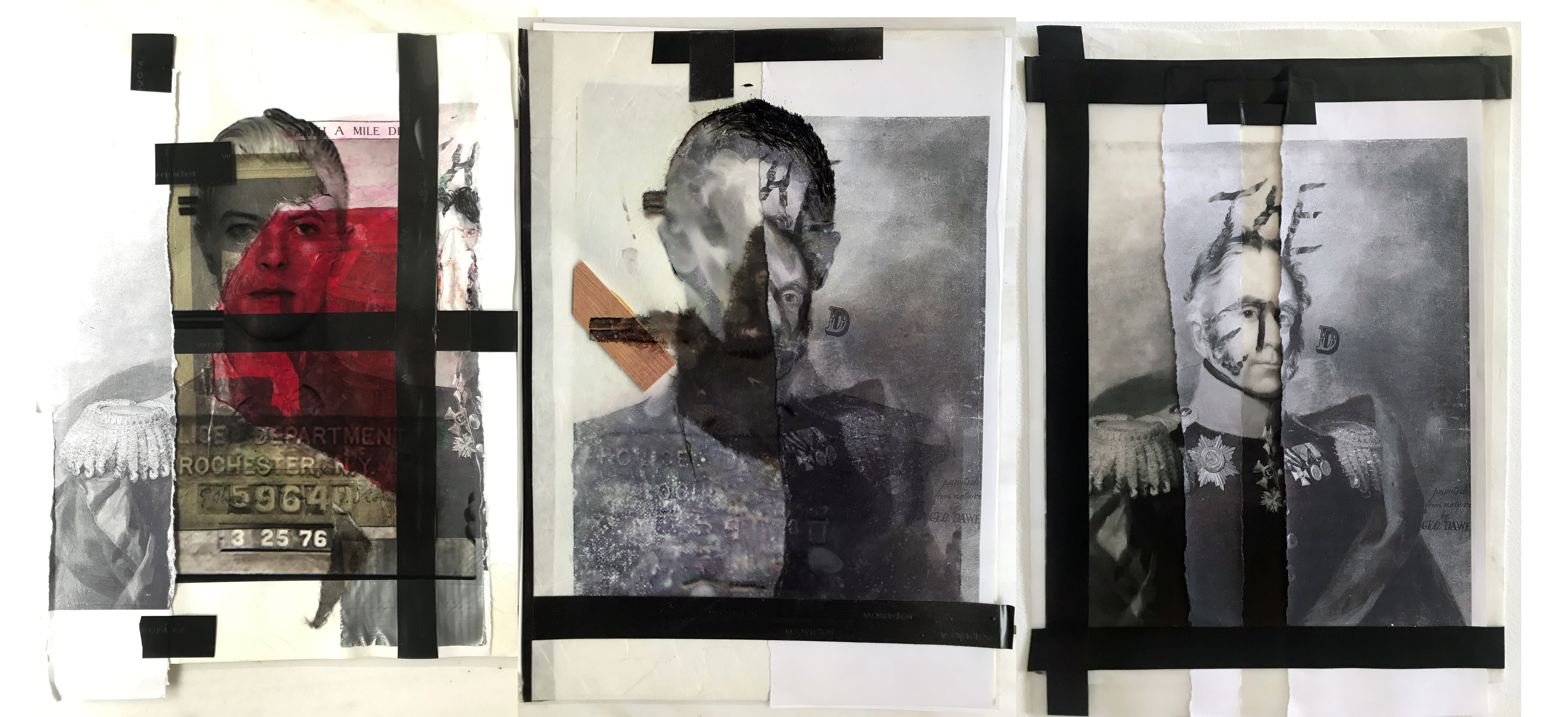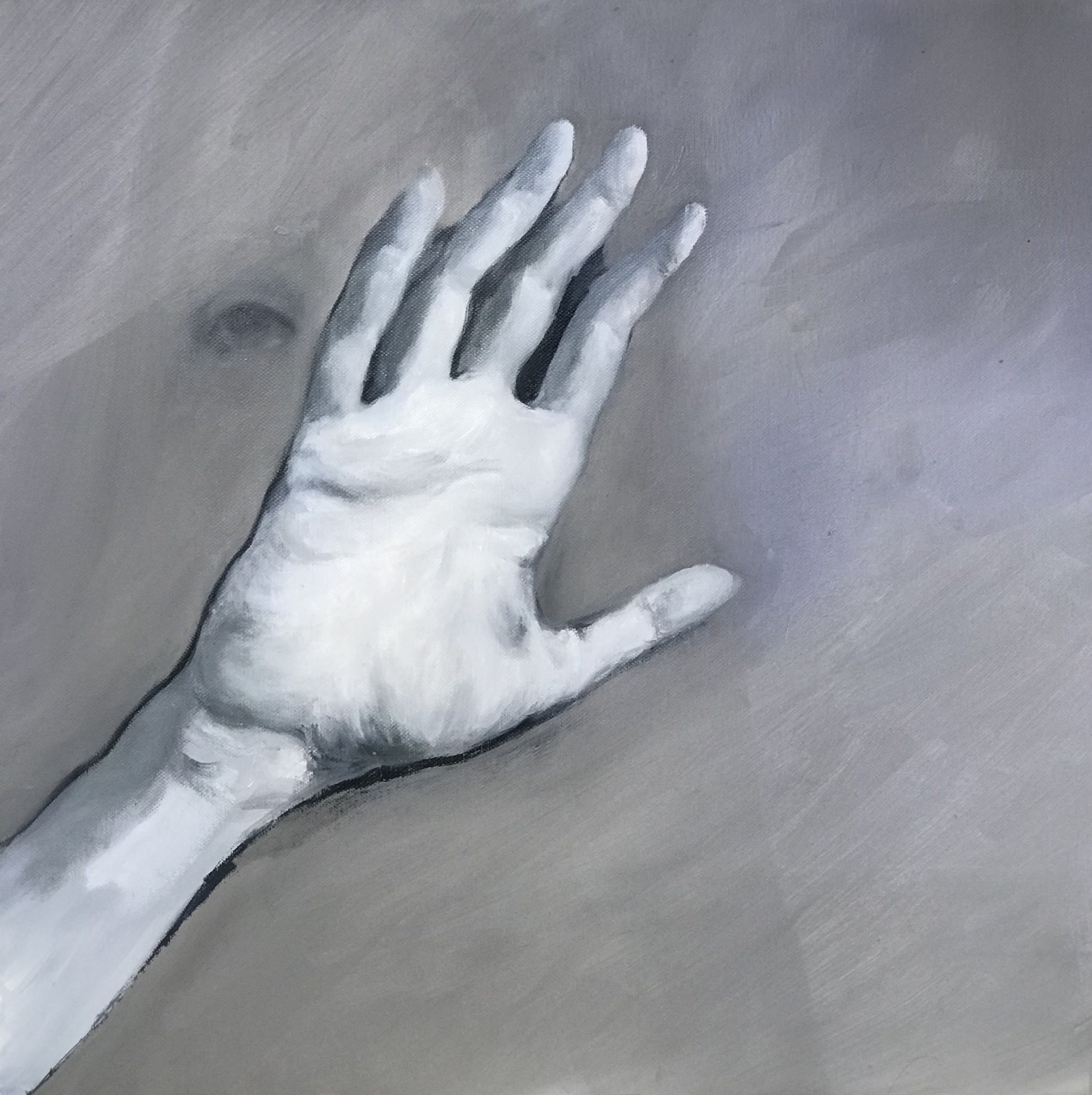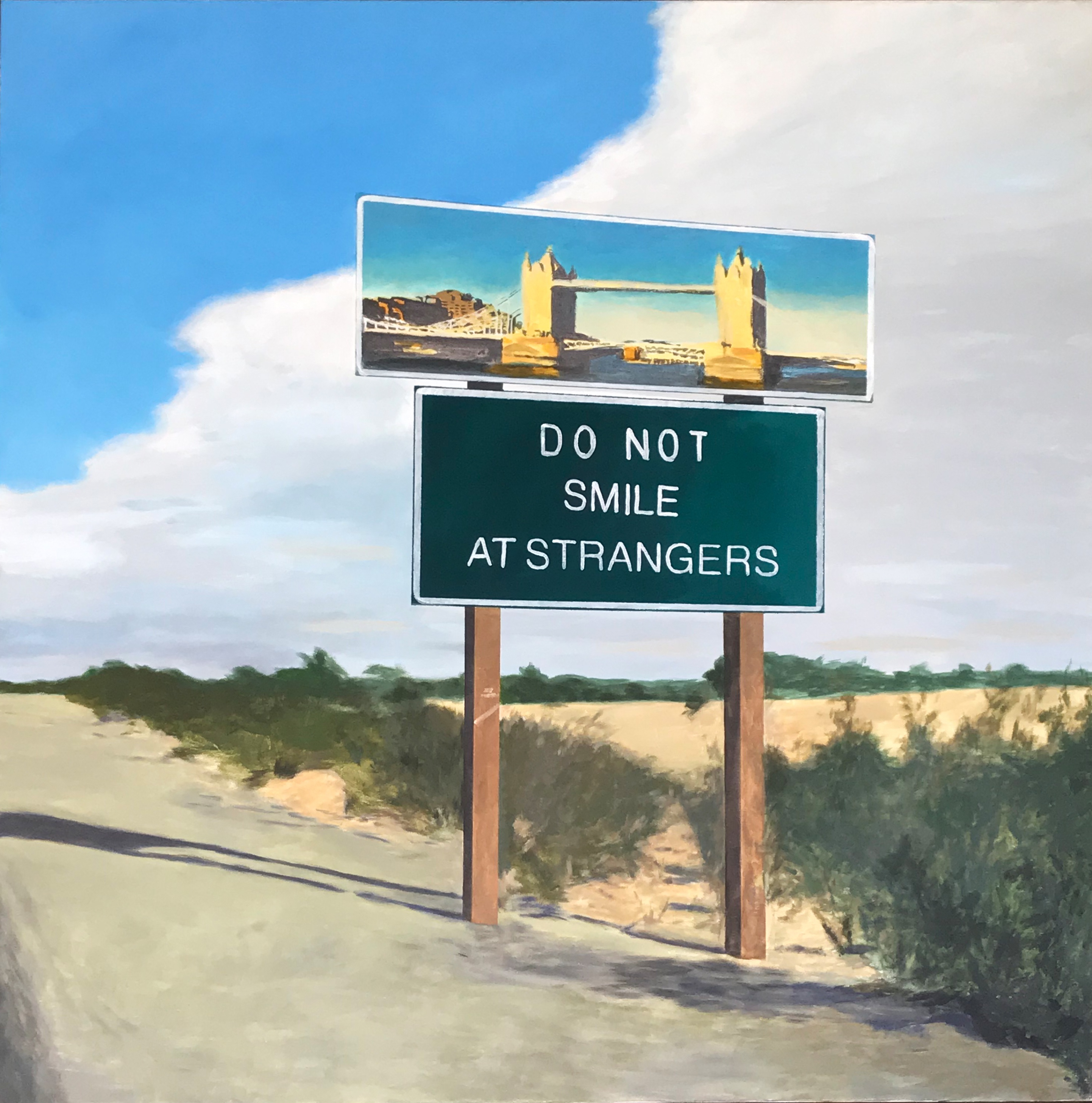My name is Brianna Luz Fernandez, and I am an associate and creative here at The CAMP! I am also curator of our recent online exhibition, Spectator Sport, which features work by American artist Augustine Chavez and Greek artist Rania Rangou, with whom this CAMP conversation is with. I was lucky enough to spend my Tuesday morning chatting with Rangou despite the 4,974 miles between us—thank you, zoom—about process and evolution as not just an artist, but a human being.
Rania Rangou, born and still living in Athens, Greece, acquired her technical training at the School of Fine Arts in Athens and in Madrid as well as video art and music techniques from the New School and School of Visual Arts in New York City. Her work, much as she views her life, reflects a continuous search for Self, featuring layers of images, colors, references and, her favorite, paradoxes. Her work can be found in private and public collections, including at the Macedonian Museum of Contemporary Art in Thessaloniki, Greece and Museum of Contemporary Art of Crete in Rethymnon, Greece.
 Travel Plan, 2019 - oil on canvas, 40 x 30 cm
Travel Plan, 2019 - oil on canvas, 40 x 30 cm
Were you born an artist or did it find you over time?
Since the beginning I was a creative kid, always playing around in a different way. I didn't play with dolls, I collected leaves and cut them, as my mother tells me, into tiny pieces and then tried to recompose them to make new things or to simply put them back together. I loved walking around in nature and thinking about things...it was a very different way of living than what was typical. When I first saw paintings I was amazed and I could stand there for hours, I felt the attraction.
You mention a process of taking things apart and putting them back together, is this deconstruction and reconstruction still a part of your practice today?
The beginning of my work is a collage, and everything with the way I work and use art has to do with putting things on top of one another. It's like the history of my country, it has many histories one on top of another. This is the basis of my work.
I love that you reference the history of your country. As a viewer, I can definitely sense a theme of questioning existence. Is this why you’ve been drawn to such a surrealist approach?
The more I grow up, the more I’m drawn—you’ve used the right word. When I try to paint easier things, I can do it for a little while, but then I start feeling pressed. I need something more to express myself and to be honest.
Can you tell me more about your process and how it’s evolved alongside your evolution as an artist?
It's like creating collages with my mind. When I'm walking around, I see something and I recompose it using many different things to make a new story. So the creative process is really just a mind collage for me. When I first started I would cut images out of magazines, but with magazines you can only use what they give you. I wanted to do something more, so I started to use Photoshop to try and see deeper. I started printing different things on the same paper, having something funny appear, and then maybe I would use it in a piece or just use it as inspiration.

Faces, 2012 - mixed media on paper, 30 x 63 cm
I notice a recurring theme of needing and wanting more, more to play with, more to express. Do you think you will ever reach a point where you feel satisfied with your work? Have you ever reached this point before with a piece?
You know, sometimes I see pieces from other painters and, mostly because of the colors, I get this feeling like I’ve tasted something perfect. In my work there are moments where I feel like a God, I feel perfect, and then there are hours where I feel very bad about it. I hate it.
A lot of your work is figurative, with a balance between the male and female. How does gender affect your worldview and ultimately how is this perspective reflected in your work?
We say that the world is unfair for women, and it is, at least the social part. I think deeply, the woman has great strength and power. She holds the “holon” [something that is simultaneously a whole in and of itself, as well as a part of a larger whole]. She’s like a god on Earth because life continues through her. If women teach their kids the right way, society will become better. A woman can make a better son, and then the boys and men will be better, so I think women play a very big role.
When I want to paint about strength or timelessness, I use a woman’s face. For me it’s a natural instinct. In ancient Crete they had the high God, and it was a woman called the Mother Goddess. They believed that women are more important than men. That's why I love Crete and its history.
When I paint men, which lately I do more than painting women, I feel that they are playing a role which they must because of society. They cannot express themselves like women. Women, when together, can express anything, Men, when they are together, are trying to “play men,” and that has a loneliness to it. They can never act truly, although they seem free and happy. I think there is a small sadness to them.
Why do you feel you are utilizing the male figure more than the female figure in your work as of late?
I'm reaching middle age. I’ve started seeing and realizing more. [Greece] has gone through it’s economic crisis, and then difficult times, and that made me a bit more skeptical. Male portraits were easier to tackle with my skepticism. These late years of difficulty were very important for my work. Before, it was all a big party to me. I was working fast, using acrylics because they dry at the same moment, partying all the time, making good money for an artist and then, all of a sudden, everything became very different. I had to reconsider and think deeply about what art is, and not what I gain from it. I started spending many hours in my studio. I started using more oil because I had more time to let it dry. These years were a very good time for me and my consciousness.

Miracle As Expected, 2020 - oil on canvas, 50 x 50 cm
Of course, every stage in a person’s life is important because it helps us grow, even outside of being an artist, but do you feel more connected to the work you’ve produced before this moment of change or after?
I realize now, after the School of Arts in Athens asked me to talk about the entirety of my work, that the process has changed but the themes and ideas have persisted. Even when I was a student, I was making art about time and history. Earlier, it was just in a faster and funner way. Now I research more, and I give myself more time. The ideas really haven't changed much. For example, I love paradoxes, a lot. They just come to me, and so many of my works have this, even work from when I was a kid.
Can you talk about an example of a paradox in your work?
I have a painting that was featured in my first exhibition ever, a portrait of my Grandmother with the words “My Grandmother Said Fuck Off”. It was a 25 year old expression, but the idea of seeing something, and then that something not being what you would expect, makes me happy. I like to use these moments in funny ways and in surrealistic ways. For example there is another painting of a street and then there is a big street sign that is a paradox. Things like this, you are in a different place and then you see a different message that you don't expect.

Don't Smile at Strangers, 2008 - acrylic on canvas, 130 x 130 cm
How does this translate to the experience you’d like for someone to have with your work?
I think that it is important to be ready to be surprised, and that's the basic reason for sharing these paradoxes that come to me. Surprises come to us very often, and we must be ready for them to come. I use them for fun, but deep inside, I feel it is something true about life; strange and funny things appear in front of our eyes when we least expect it.
Speaking of surprises, are there any mediums you’re exploring that you don’t usually? Any dream projects in the works?
I often say to myself at night “oh, tomorrow I must work on my sculpture.” Then I arrive at my studio the next day, grab my oil paints and start painting. But yes, I like to use clay and make small funny sculptures, playing with ways that the ancient Greeks used clay and putting funny faces over them. I’d love to realize a few installations. I have sketches but I haven't realized these ideas yet.
To see more of Rania Rangou’s work, and how it functions in conversation with other artists, please visit our recent online exhibition, Spectator Sport, open from July 15 th through to August 15th.